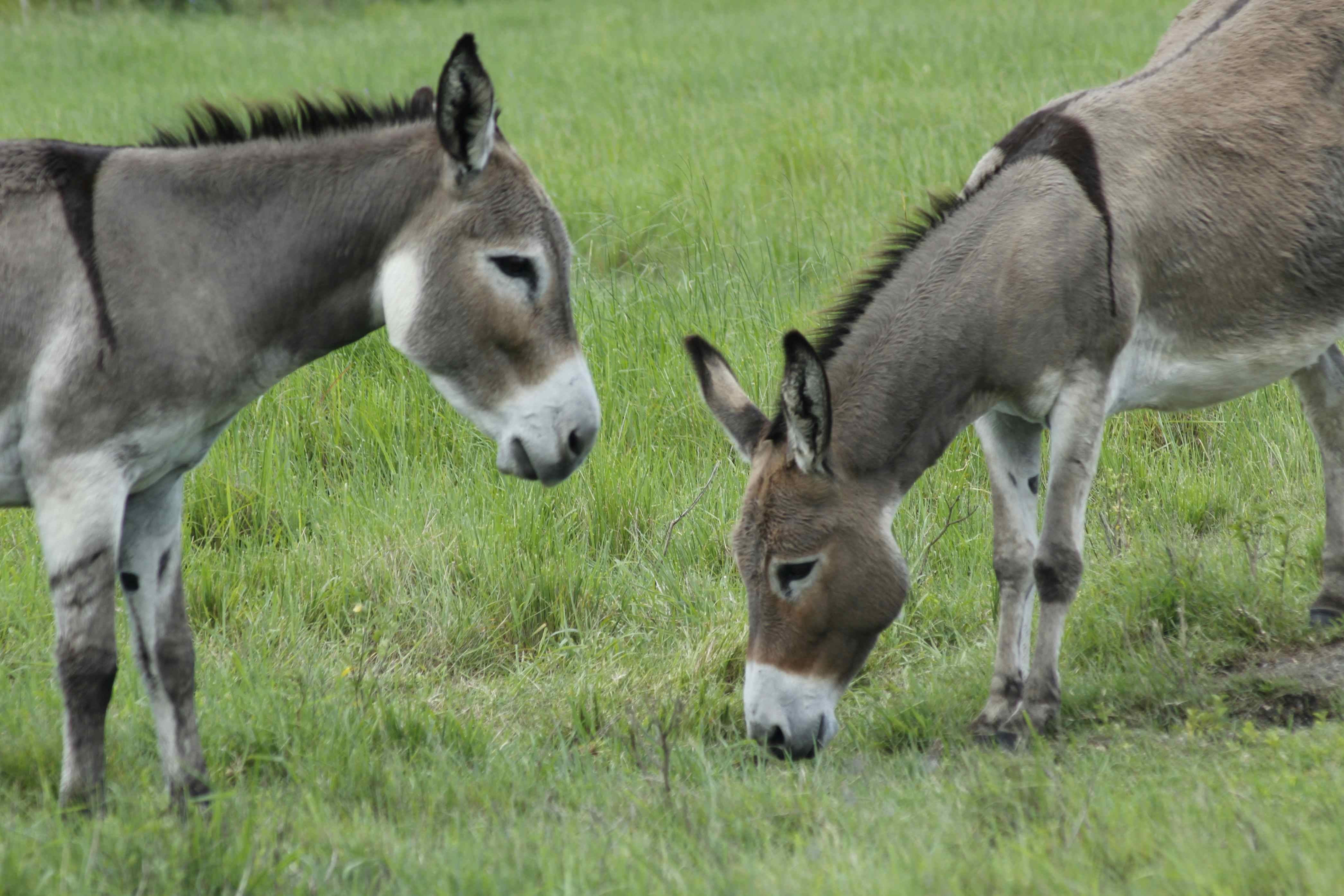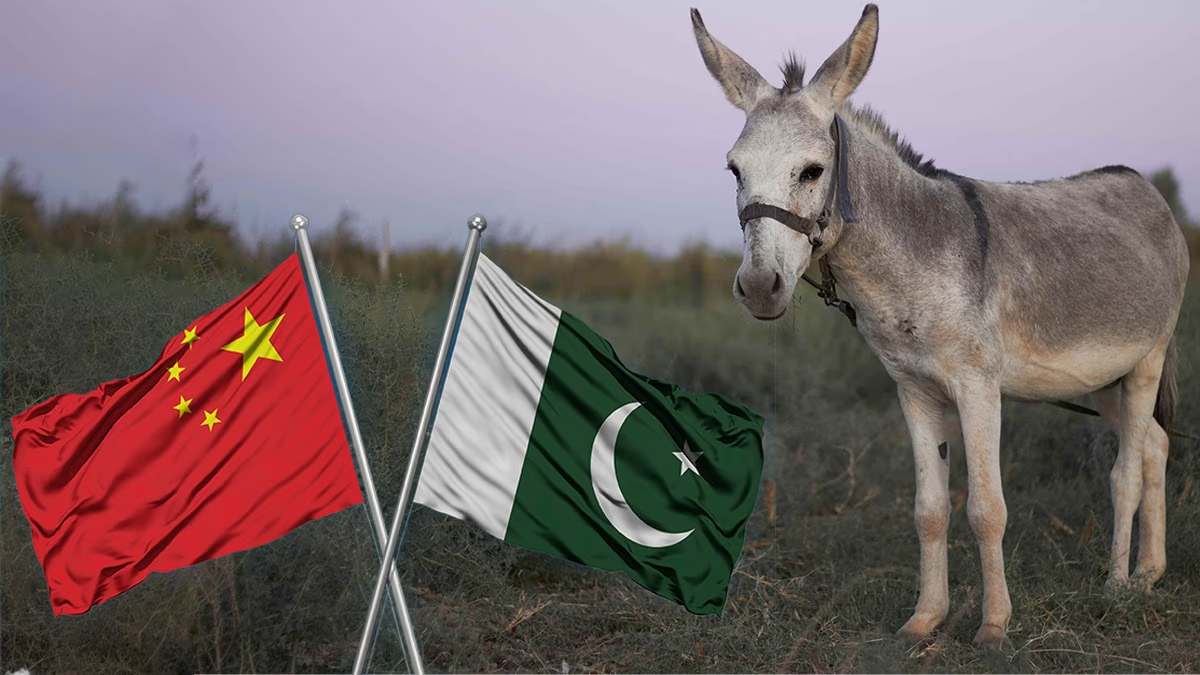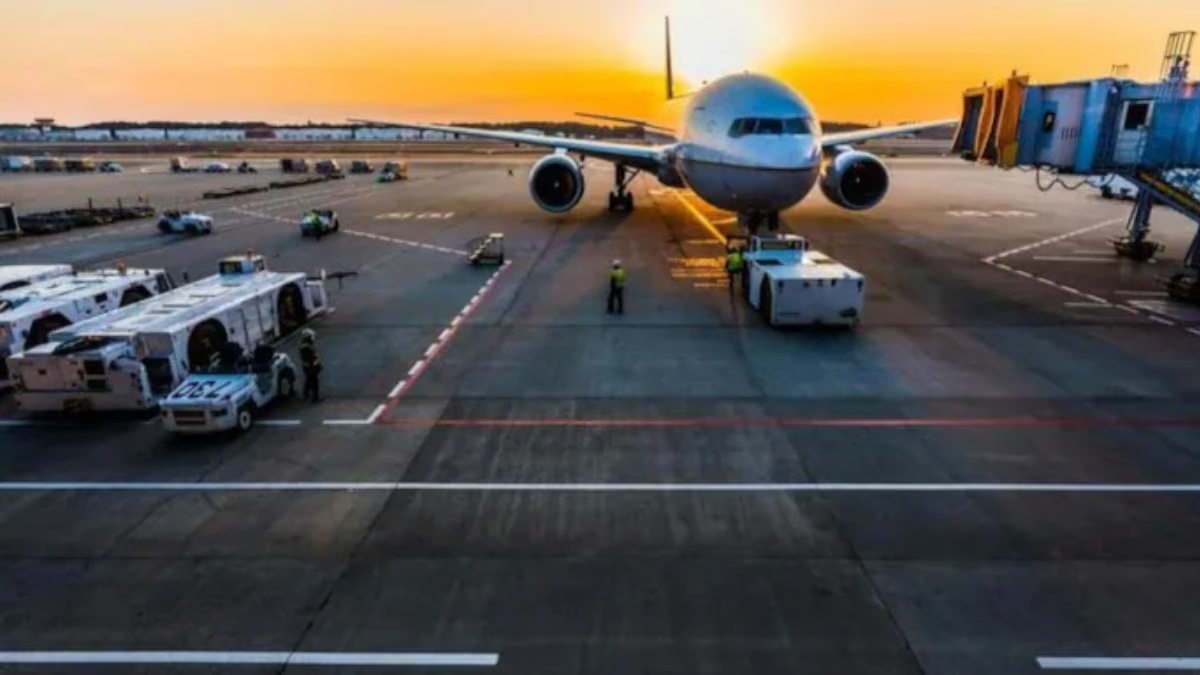During Operation Sindoor, Pakistan received substantial military assistance from China. In this conflict, Pakistan attempted unsuccessful strikes on Indian objectives, thanks to Chinese support, including J-10C fighter jets and PL-15 missiles. Pakistan proudly showcases its military partnership with China globally.
However, the China-Pakistan alliance extends beyond arms trade. While China provides weapons, Pakistan supplies donkeys to satisfy Chinese demand. This donkey trade may sound unusual to some, but it is a lucrative reality.
Pakistan exports both donkeys and donkey meat to China. To facilitate this, donkey farms have been established in Gwadar. In China, donkey meat is a popular delicacy, especially in Hebei Province where it's commonly used in burgers. Restaurants often display donkey images to entice their customers.
The newly operational slaughterhouse in Gwadar is a significant facility where donkeys are processed for their meat, bones, and hides, which are then exported. In February, Pakistan's Ministry of National Food Security & Research announced the starting operations of the Gwadar slaughterhouse. These products are targeted for sale in China.
According to this ministry, Pakistan agreed to an annual supply of 216,000 donkey hides and meat to China. Chinese companies are also showing interest in establishing slaughterhouses at the Karachi port. Moreover, the Chinese utilize these products for medicinal purposes with the market value of this agreement being nearly $8 million.
In China, donkey hide is used to produce traditional medicine known as Ejiao, which is believed to boost blood, improve immunity, and maintain youthfulness. This gelatin derived from donkey skin also promotes radiant skin.

Source: aajtak
The popularity of Ejiao surged during the Qing dynasty (1644-1912), particularly among China's elite. In recent years, it became a luxury item often used for anti-aging purposes, spurred by television shows like 'Empresses in the Palace'. The growing middle class and older population in China have driven demand, leading to a 30-fold increase in price over the past decade, skyrocketing from 100 Yuan per 500 grams to 2,986 Yuan.
Interestingly, while Karachi is a major industrial center in Pakistan, donkeys are still commonly used for transporting goods.
Some Pakistani entrepreneurs advocate for exporting live donkeys. However, official sources point out that exporting live animals involves significant logistical challenges.
During a meeting with a Chinese delegation, Pakistan's Minister for Food Security and Research, Rana Tanveer Hussain, mentioned this initiative not only aims to boost exports but also create local job opportunities. Moreover, he reassured efforts to conserve native donkey breeds by enforcing strict regulations.
The donkey trade is proving to be a promising avenue for Pakistan to earn foreign exchange, as donkey farming requires limited specialization.
Nonetheless, the emerging "Donkey Economy" has provoked social and cultural debates. Many Pakistani animal advocates and NGOs consider this business unethical and continue to campaign against it.
In response to the slaughterhouse in Gwadar, Balochistan residents have been vocal in their opposition. Although based in Balochistan, local communities have historically disapproved of Chinese projects. They allege that the Pakistani government, in collaboration with China, exploits their resources. Protests against the donkey slaughterhouse in Gwadar underscore local discontent.




